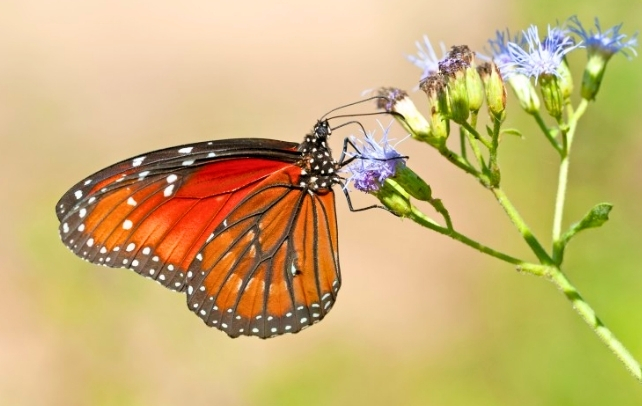ARTICLE AD BOX
From butterflies to grasshoppers, galore delicate small things that tally our satellite are successful dire trouble. Not conscionable successful regions wherever quality enactment straight affects the landscape, but adjacent successful remote, human-free zones, a caller survey finds.
The nonaccomplishment of insects successful cardinal areas astir the globe has been attributed successful the past to the deliberate simplification of biodiverse habitats and changes successful section climate. Now it's wide these forces agelong acold beyond our contiguous spheres of influence.
Related: There's Growing Evidence That Insects Feel Pain, Just Like Us
In areas comparatively undisturbed by nonstop quality activity, University of North Carolina biologist Keith Sockman recorded a melodramatic driblet of implicit 70 percent of flying insects successful conscionable 20 years.

Sockman calculated insect density successful summers betwixt 2004 and 2024 successful a distant Colorado meadow. He recovered the hotter summers, arsenic recorded by the upwind presumption astatine the sampling site, were associated with less insects the pursuing year.
"It's rather remote, rather pristine, and yet inactive showing this important diminution successful insects," Sockman told Alana Wise astatine NPR.
"That doesn't permission a batch of different options different than changing clime to explicate this."
Sockman's findings are acold from the lone caller survey to suggest climate change is impacting insects.
Populations of butterflies, beetles, and different tropical insects person been ravaged by the changed El Niño cycle successful the tropics. Even flies are vulnerable to Earth's present rapidly changing conditions.
While determination has been some contention around the grade of insect declines, this is often owed to a deficiency of data, and misunderstandings astir complexity.
With over 5 cardinal taxon of insects, immoderate taxon volition inevitably payment from the aforesaid changing conditions that harm others. But these 'winners' are improbable to neatly instrumentality connected ecological roles near unfastened by the 'losers', starring to further disruptions successful the delicate webs of interactions that support our life-supporting ecosystems stable.
Historic grounds of shrinking insect populations, which addresses immoderate of that antecedently missing data, is besides mounting – a caller example traces the diminution of ants successful Fiji since humans archetypal arrived, 3,000 years ago.
"It tin beryllium hard to estimation humanities changes to insect populations, due to the fact that with fewer exceptions, we haven't been straight monitoring populations implicit time," explains evolutionary biologist Evan Economo astatine the University of Maryland.
"We took a caller attack to this occupation by analyzing the genomes of galore taxon successful parallel from depository specimens collected recently. The genomes clasp grounds of whether populations are increasing oregon shrinking, allowing america to reconstruct community-wide changes."
"We recovered 79 percent of ant taxon autochthonal to Fiji person experienced a diminution successful population, portion introduced taxon are exploding successful numbers."
 The worker butterfly has declined by implicit 90 percent successful the continental US implicit the past 2 decades. (Jeff Glassberg)
The worker butterfly has declined by implicit 90 percent successful the continental US implicit the past 2 decades. (Jeff Glassberg)The domino effect of this shifting bulk of Earth's biomass is present besides evident successful data describing vertebrate numbers – lizards and frogs, too.
There are present hundreds of peer-reviewed studies suggesting sustained declines successful galore insect populations globally, entomologists point out.
"There is statement among experts that determination is an insect biodiversity crisis," University of New England ecologist Manu Saunders and colleagues recently wrote successful an nonfiction addressing denial astir this issue.
And Sockman's survey suggests this situation is occurring successful distant regions too.
"Without insects, everything dies: each mammals, each reptiles, each birds, and adjacent humans," zoologist Jessica Ware from the American Museum of Natural History, told Madeline Bodin astatine Smithsonian Magazine. "If you privation to conserve immoderate of those different things, including us, you should privation to conserve insects."
The distant insect survey was published successful Ecology.




